Home » Diet & Food » Apparently Peanut Butter Has More Protein Than Eggs And I’m Not Mad About It
Apparently Peanut Butter Has More Protein Than Eggs And I’m Not Mad About It
Eggs are the poster child for protein—they’re cheap AF, versatile, vegetarian, and pack six grams of protein (per large egg, that is). Not too shabby, eh?
But honestly, how many more hard-boiled eggs can you eat before you start to snore mid-bite? Time to broaden your horizons with these high-protein foods that have even more protein per serving than an egg:
1. Tuna
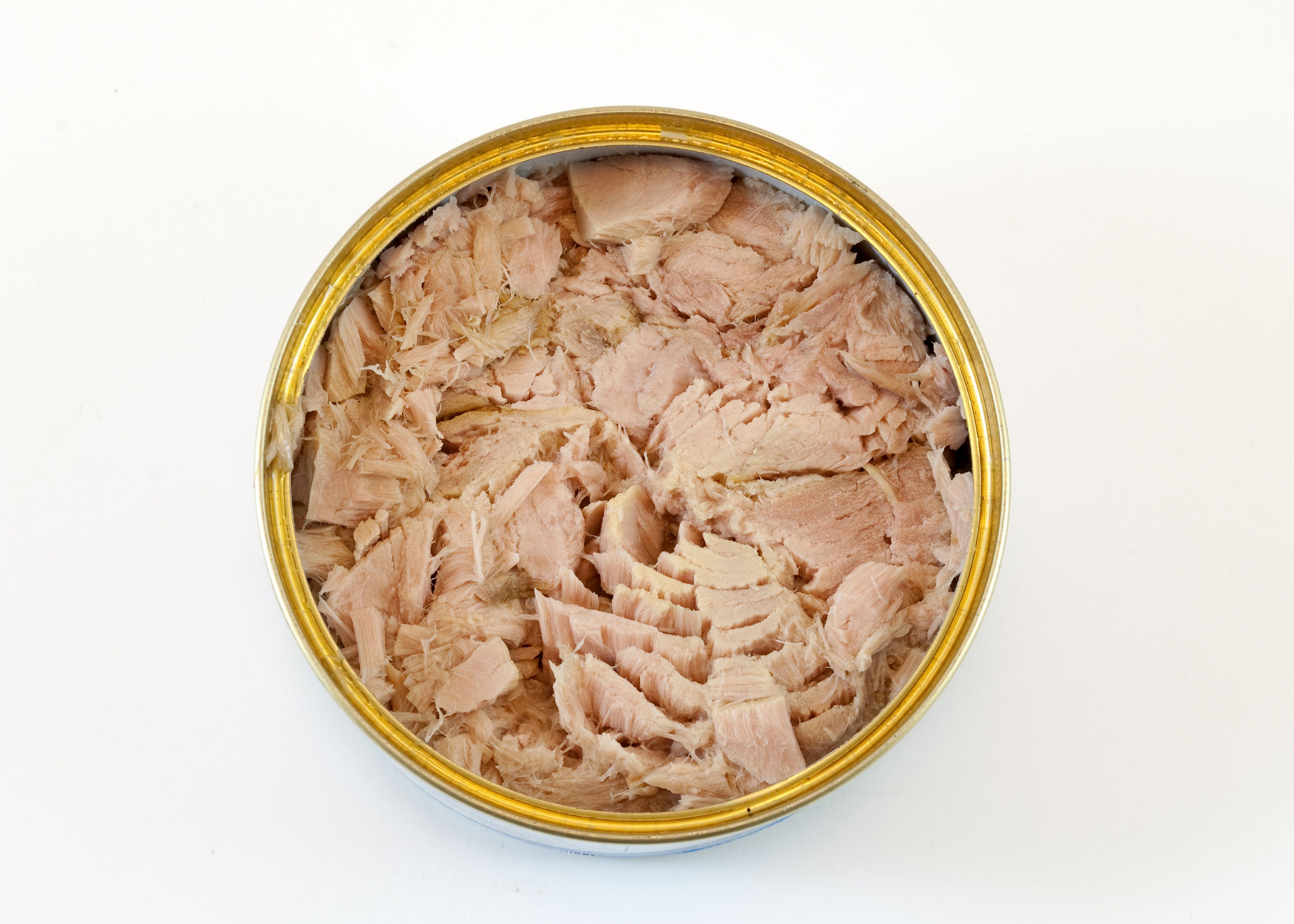 NLAURIAGetty Images
NLAURIAGetty Images
Protein: 20 grams per 3-ounce serving
According to Amy Shapiro, RD, founder of Real Nutrition, tuna is a great source of omega-3 fatty acids, which have protective properties against heart disease and cognitive decline. If you buy it canned, it’s an especially affordable protein source and pantry staple. (Bonus: No cooking required!) Add it to sandwiches, wraps, and salad. And on takeout night, treat yourself to tuna sashimi.
2. Peanuts
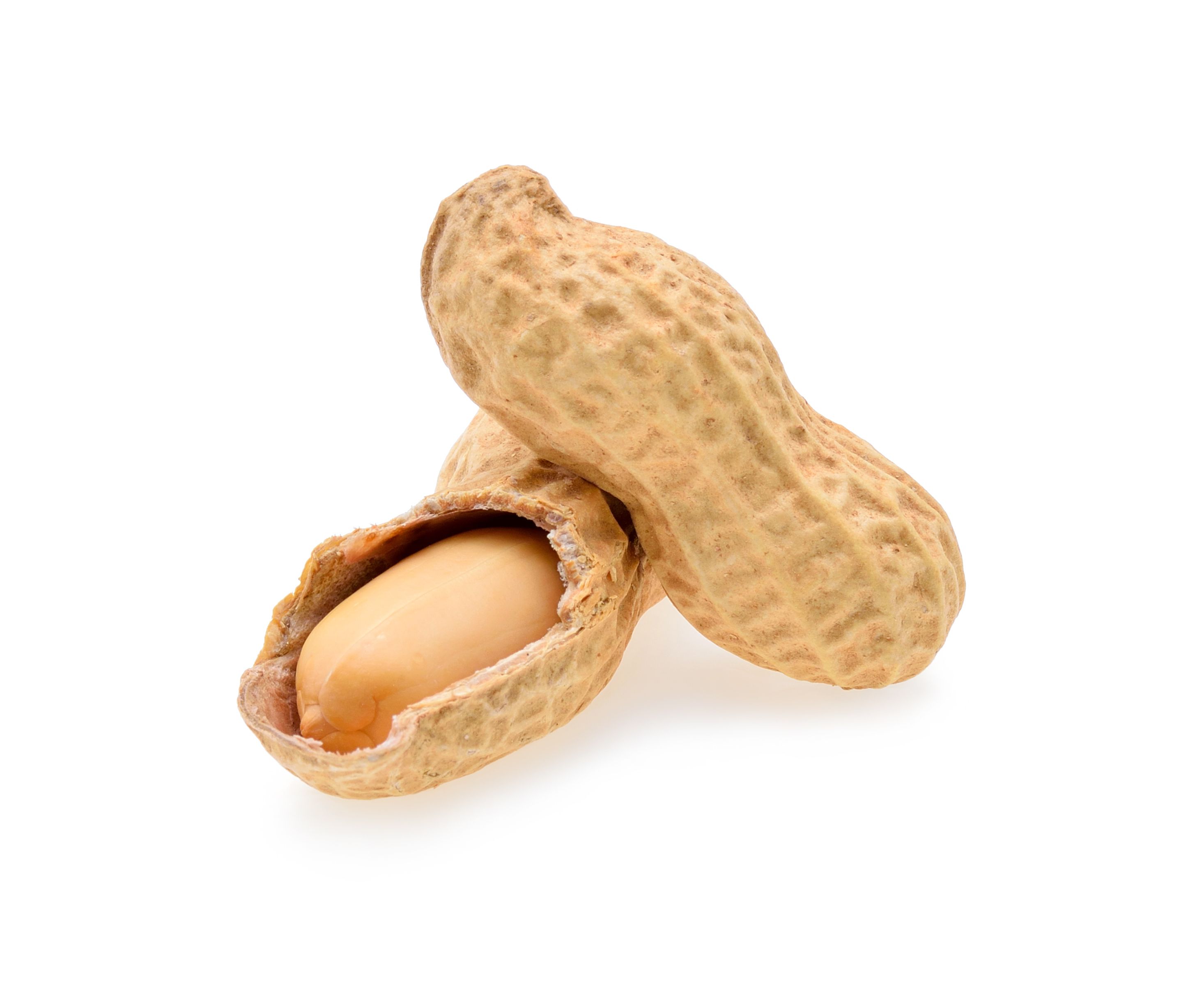 Akepong Srichaichana / EyeEmGetty Images
Akepong Srichaichana / EyeEmGetty Images
Protein: 7 grams per 1-ounce serving
“As a legume, they provide both protein and carbohydrates, and are great sources of heart-protective mono- and poly-unsaturated fats, folic acid, and vitamin E,” says Shapiro. For a quick, inexpensive DIY nut butter, blend them up and spread it on slices of fruit. Or, slather it between whole-grain bread for a quick vegan meal on the run, she says.
3. Turkey
 vikifGetty Images
vikifGetty Images
Protein: 26 grams per 3-ounce serving
If you’re struggling to catch zzz’s at night, this widely available protein source could be your ticket. “It contains the amino acid tryptophan, which can help you feel calm and even sleepy,” says Shapiro. “So it’s a great ingredient to enjoy in the evening time.” Gobble up this sandwich or salad staple by picking up ready-made turkey at a deli or supermarket, or try roasting your own.
4. Tempeh
 eskymaksGetty Images
eskymaksGetty Images
Protein: 16 grams per 3-ounce serving
This vegan meat substitute made of fermented soybeans isn’t only full of protein, but fiber, too. If you’re experiencing gut and digestion issues, Shapiro says its fermented properties help balance the microbiome and your gut. Plus, as the least-processed form of soy on the market, Shapiro tends to recommend it most. The best part? It’s so versatile that you can bake it or sauté it, and “it usually comes prepared so you don’t have to do much once you take it out of the package,” she says.
5. Dried Spirulina
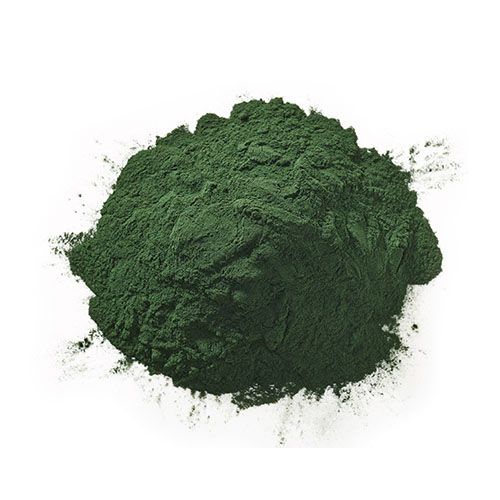 Getty Images
Getty Images
Protein: 8 grams per 2-tablespoon serving
Fish aren’t the only high-protein food you can find in the ocean—spirulina (powdered algae or seaweed) is surprisingly full of protein. Hint: Try sprinkling spirulina over a salad, or use it to season roasted vegetables. (Spirulina powder also can turn your boring smoothie blue.)
6. Greek yogurt
 Getty Images
Getty Images
Protein: 17 grams per single-serving container
When it comes to muscle recovery, plain nonfat Greek yogurt knocks it out of the park: Those little plastic cups pack tons of protein in just 100 calories.
7. Gruyere cheese
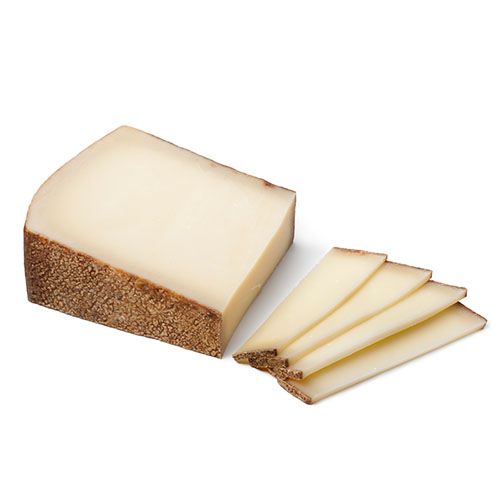 Getty Images
Getty Images
Protein: 8 grams per 1-ounce serving
This deliciously rich variety of Swiss cheese is arguably the most addictive way to get your daily protein intake. Just watch your portions, though: While a one-ounce serving contains a reasonable 117 calories, it can be easy to consume several portions if you aren’t careful.
8. Dried pumpkin seeds
 Getty Images
Getty Images
Protein: 10 grams per 1/4-cup serving
Pumpkin seeds may be best known for their magnesium, but they’re also a rich source of protein. Top salads with them or snack on them whole.
9. Chickpeas
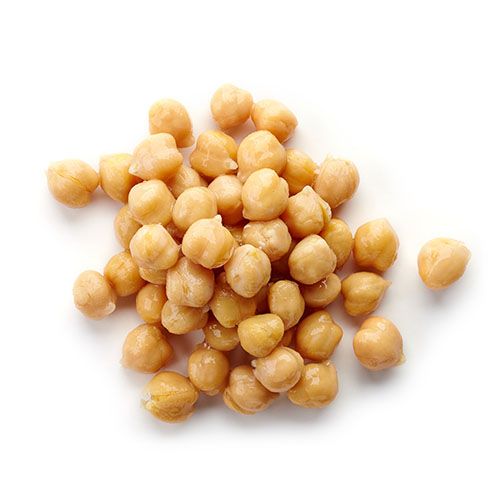 Getty Images
Getty Images
Protein: 12 grams per 1-cup serving
“Chickpeas have iron, phosphate, calcium, magnesium, manganese, zinc, and vitamin K, which all contribute to building and maintaining bone structure and strength,” says Beth Warren, RDN, and author of the book Secrets Of A Kosher Girl. And they’re high in protein, too. Win-win.
10. Tofu
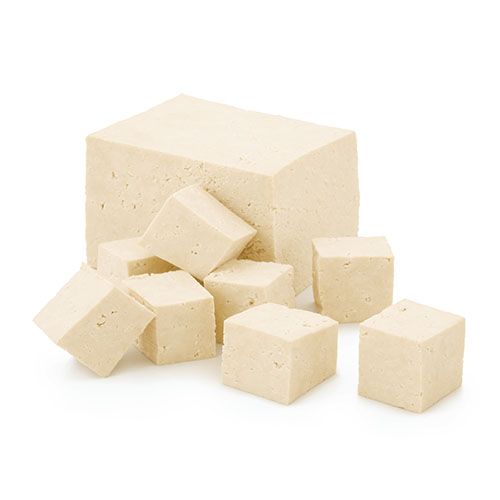 Getty Images
Getty Images
Protein: 9 grams per 100-gram serving
Whether scrambled or sautéed, tofu is an ideal—and flexible!—protein for both day and night. “It contains all eight essential amino acids,” says Warren. Plus, you’ll get a hefty dose of magnesium, copper, zinc, and vitamin B1.
11. Almonds
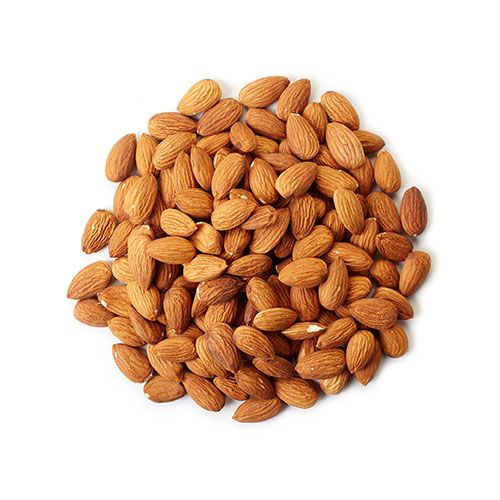 Getty Images
Getty Images
Protein: 7.5 gramsper 1/4-cup serving
They’re a high-protein food, but almonds also make a great snack because they’re high in vitamin E, copper, and magnesium, says Warren.
12. Edamame beans
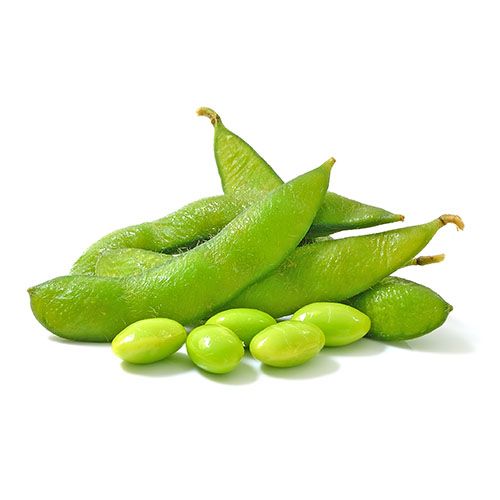 Getty Images
Getty Images
Protein: 9 gramsper 1/4-cup serving
Fueling up with protein-packed soybeans at your favorite sushi joint might be your ticket to proper recovery from your workout. “They’re also an excellent source of iron and calcium,” says Warren.
13. Rolled oats
 Getty Images
Getty Images
Protein: 7 grams per 1/2-cup serving
This breakfast staple is often billed as a straight-up carb, but it actually contains a hefty dose of protein, along with filling fiber, and a load of vitamins, minerals, and antioxidants, says Warren.
14. Shrimp
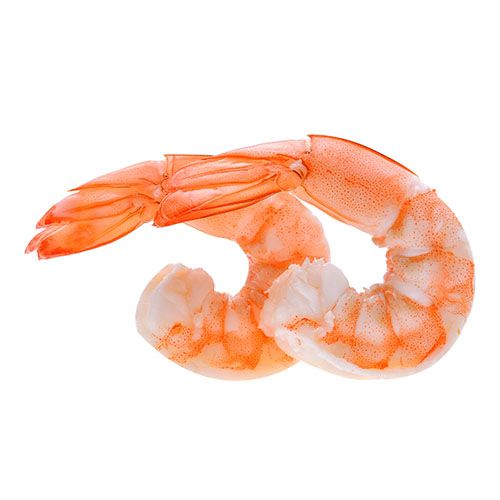 Getty Images
Getty Images
Protein: 20 grams per 3-ounce serving
If you’re sick of chicken, go for shrimp—they’re low-calorie with a surprisingly high amount of protein, says Martha McKittrick, RD, a nutritionist in New York City and blogger at City Girl Bites. Rather than bathed in butter, enjoy them dipped in cocktail sauce for a healthier option.
15. Seitan
 Getty Images
Getty Images
Protein: 20 grams per 3-ounce serving
Seitan—a plant-based protein derived from wheat gluten—is another great high-protein, vegetarian meat substitute. “It takes on the seasonings it’s prepared with, and often mimics the taste of meat or chicken dishes,” says McKittrick. But definitely don’t eat seitan if you are gluten-sensitive.
16. Cottage cheese
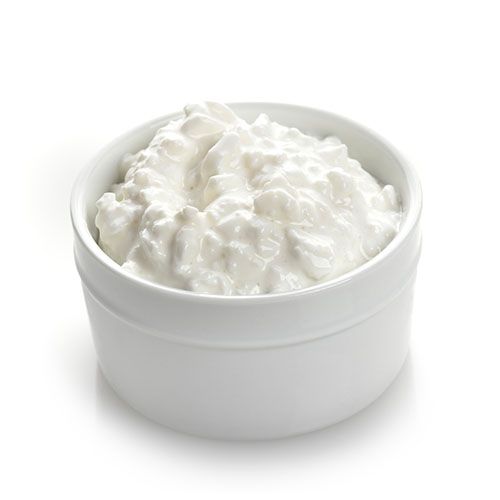 Getty Images
Getty Images
Protein: 24 grams per cup serving
Yeah, yeah, your grandma loves this stuff. But it’s also legit high in protein—and so versatile, saysJill Weisenberger, RDN, author of The Overworked Person’s Guide to Better Nutrition. Go sweet by mixing in fruit and nuts, or savory with tomatoes, fresh basil, and a few cracks of black pepper, she suggests. (You can even eat it for breakfast!)
17. Roast beef deli meat
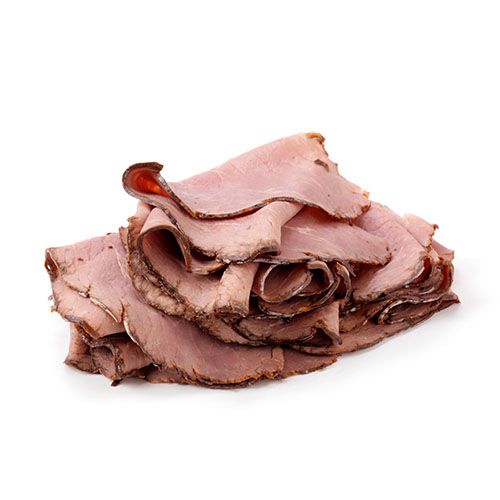 Getty Images
Getty Images
Protein: 19 grams per 100-gram serving
Yes, deli meat can be high in preservatives and sodiums (cue side-eye), but it can also be part of a healthy diet. “They key is to choose high quality options. Deli meats should include nothing more than the meat and seasonings,” says Weisenberger.
Source: Read Full Article
-
 Waitrose launches vegan pigs in blankets and more in Christmas dinner range
Dec 19, 2019
Waitrose launches vegan pigs in blankets and more in Christmas dinner range
Dec 19, 2019 -
 This Impressive Martha Stewart Coffee Meringue Cake Is Crafted Using Store-Bought Ice Cream
May 9, 2023
This Impressive Martha Stewart Coffee Meringue Cake Is Crafted Using Store-Bought Ice Cream
May 9, 2023 -
 Chrissy Teigen's Favorite Cookbooks Make Perfect Holiday Gifts For Foodies
Nov 13, 2019
Chrissy Teigen's Favorite Cookbooks Make Perfect Holiday Gifts For Foodies
Nov 13, 2019 -
 ‘I Started A 16:8 Intermittent Fasting Schedule And Walking For Weight Loss To Lose 102 Pounds’
Mar 10, 2021
‘I Started A 16:8 Intermittent Fasting Schedule And Walking For Weight Loss To Lose 102 Pounds’
Mar 10, 2021